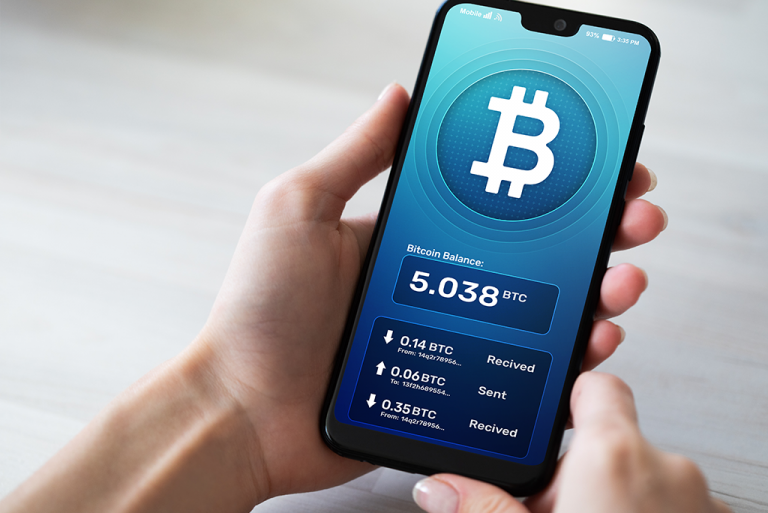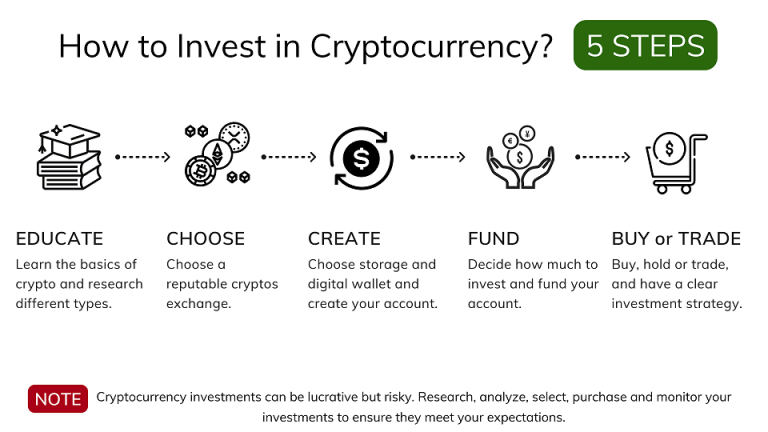As cryptocurrency continues to grow in popularity, many South Africans are turning to crypto mining as a way to earn a passive income. However, mining can be a tricky business and requires some insider knowledge to maximize profits. In this article, we will share some tips and tricks for South African miners to help them get the most out of their mining operations.

Crypto mining, also known as cryptocurrency mining, involves the process of verifying and adding transactions to a blockchain. Miners use powerful computers to solve complex mathematical problems, and in return, they are rewarded with new coins. In South Africa, crypto mining has gained traction in recent years, mainly due to the increasing awareness and adoption of cryptocurrencies.
To maximize profits in South Africa, it’s essential to understand the factors affecting crypto mining profitability. These factors include the mining difficulty, which refers to how challenging it is to mine a cryptocurrency, and the coin’s value in the market. Additionally, the cost of mining hardware, electricity, and other operational costs will impact your overall profit.
The South African government has been relatively open to cryptocurrencies and their underlying technology. However, there is no specific regulatory framework for crypto mining. As a result, mining activities are neither legal nor illegal, but rather operate in a regulatory gray area.
Despite this lack of regulation, miners must still comply with certain laws, such as tax laws. The South African Revenue Service (SARS) considers cryptocurrencies as intangible assets, which means that mining profits are subject to income tax. Therefore, it is crucial to keep accurate records of your mining activities and earnings to ensure compliance with tax laws.
Additionally, it is important to monitor regulatory developments in the country, as the government is actively exploring ways to regulate cryptocurrencies. Being aware of any changes in the legal landscape will help you adapt your mining operations accordingly and avoid any potential legal issues.
Electricity costs play a significant role in determining the profitability of crypto mining in South Africa. The country has experienced frequent power outages and rising electricity costs, which can negatively impact mining operations. To maximize profits, it’s essential to find ways to minimize electricity consumption and secure a reliable power supply.
By understanding the factors affecting crypto mining profitability in South Africa, being aware of the legal and regulatory environment, and considering electricity costs and availability, you can maximize your profits from cryptocurrency mining. Stay informed on industry trends, invest in the right hardware, and optimize your mining setup to ensure success in this lucrative market.
Deciding which cryptocurrency to mine in South Africa can be a daunting task. But fear not! We’ve compiled a list of factors to consider that’ll make your decision-making process a breeze:
Here are some popular cryptocurrencies that South African miners have had success with:
Besides established cryptocurrencies, several emerging coins offer high returns for South African miners. These include:
When selecting the right cryptocurrency to mine in South Africa, carefully consider factors like profitability, market stability, mining difficulty, and the coin’s adoption and use case. By doing thorough research and evaluating these aspects, you’ll be well on your way to maximizing your mining profits. Happy mining!

When it comes to selecting the right mining hardware, South African miners have three main options: Application-Specific Integrated Circuit (ASIC) miners, Graphics Processing Unit (GPU) miners, and Central Processing Unit (CPU) miners. Each type of hardware has its pros and cons, and it is essential to understand their differences to make the right choice for your mining operations.
ASIC miners are specifically designed for mining a particular cryptocurrency, such as Bitcoin. These devices are highly efficient and powerful, making them the top choice for large-scale mining operations. However, ASIC miners can be expensive and have limited flexibility, as they can only mine one type of cryptocurrency. Moreover, the rapid development of newer ASIC models can quickly render older models obsolete. (Don’t get too attached to your shiny new ASIC miner!)
On the other hand, GPU miners are more versatile and can mine multiple cryptocurrencies. They are also more affordable than ASIC miners, making them a popular choice for smaller mining operations and hobbyists. But don’t get too excited—GPU miners are less efficient and consume more electricity compared to ASIC miners.
CPU mining is the least efficient option, as it uses a computer’s processor to mine cryptocurrencies. This method is not recommended for serious miners, as it consumes a significant amount of electricity and has low hash rates. CPU mining may only be suitable for those looking to mine less popular, CPU-friendly cryptocurrencies (or those who just want to heat their homes in the winter).
When choosing mining hardware, South African miners should consider several factors, including:
To maximize profits in South African crypto mining, it is crucial to create an energy-efficient and cost-effective mining setup. Here are some tips to achieve this:
By considering these factors and carefully selecting the right mining hardware and setup, South African miners can maximize their crypto mining profits and minimize costs. Happy mining!

Joining a mining pool has become a popular choice among cryptocurrency miners in South Africa. It offers a more consistent income and stability, but is it really the best option? Let’s dive into the advantages and disadvantages of joining a mining pool.
Several mining pools are favored by South African miners due to their reliability, low fees, and compatibility with local mining equipment. Here are some top contenders to consider:
Before jumping into a mining pool, make sure to research fees, payout structures, and supported cryptocurrencies to ensure compatibility with your mining goals and hardware.
Solo mining means working independently to find and validate blocks. It can be more challenging and less consistent than joining a mining pool, but it has its own set of rewards.
Ultimately, South African miners must carefully consider the advantages and disadvantages of joining a mining pool versus solo mining. While mining pools offer consistency and lower hardware requirements, solo mining can provide larger rewards and more independence. The choice will depend on each miner’s resources, risk tolerance, and long-term mining goals. So, what will it be? The camaraderie of a mining pool or the thrill of solo mining? The decision is yours!

To maximize profits from your crypto mining operations, it’s crucial to keep a close eye on your mining rig’s performance. Some important metrics to track are hash rate, power consumption, and temperature. Luckily, many mining software solutions come with built-in monitoring tools and dashboards to help you track these metrics in real-time. After all, who doesn’t love a good dashboard?
Another essential factor is keeping your mining software up-to-date with the latest version. This helps you take advantage of improvements and bug fixes, preventing downtime and potential loss of revenue. It’s also a good idea to tweak and fine-tune your mining software’s settings for better performance and efficiency. This may involve adjusting overclocking settings, power limits, and fan speeds to find that sweet spot between performance and power consumption.
Let’s face it – taxes are never fun. However, it’s essential for crypto miners in South Africa to understand the tax implications and reporting requirements. The South African Revenue Service (SARS) has classified cryptocurrency as an intangible asset, and mining activities are treated as income-generating activities. So, any income generated from mining must be declared as part of your annual tax return.
The income derived from mining activities will be subject to income tax, and the value of the mined coins will be considered as part of your gross income. To determine the tax liability, you will need to calculate the market value of the mined coins in South African Rand (ZAR) on the day they were mined. And remember, Uncle SARS is always watching!
On top of income tax, you may also be liable for value-added tax (VAT) if your mining activities are deemed to be a business. If your total annual mining revenue exceeds the VAT registration threshold, you will need to register for VAT with SARS. We highly recommend consulting a tax professional with experience in cryptocurrency taxation to ensure compliance and avoid potential penalties.
The cryptocurrency and mining industries are rapidly evolving, and it’s essential for South African crypto miners to stay informed about the latest trends and developments. Keeping up-to-date with the latest news, regulatory changes, and technological advancements can help you make informed decisions and maintain a competitive edge in the mining space.
One way to stay informed is by following reputable crypto news websites and industry influencers on social media platforms like Twitter and LinkedIn. These sources often provide valuable insights and updates on the latest trends, mining software updates, and hardware releases. After all, knowledge is power, right?
Additionally, joining online forums and discussion groups related to crypto mining can be a valuable source of information and support. These communities often share tips, advice, and experiences that can help you optimize your mining operations and troubleshoot any issues that may arise. Plus, you might make some new friends along the way!
Participating in local cryptocurrency and mining events, such as meetups, conferences, and workshops, can also help you stay informed and network with other South African miners and industry professionals. This can lead to potential partnerships, collaborations, and access to new resources that can enhance your mining operations.
By monitoring and managing your mining software effectively, understanding the tax implications and reporting requirements, and staying informed on industry trends and developments, you can optimize your crypto mining operations in South Africa and maximize your profits. Now go forth and mine!

